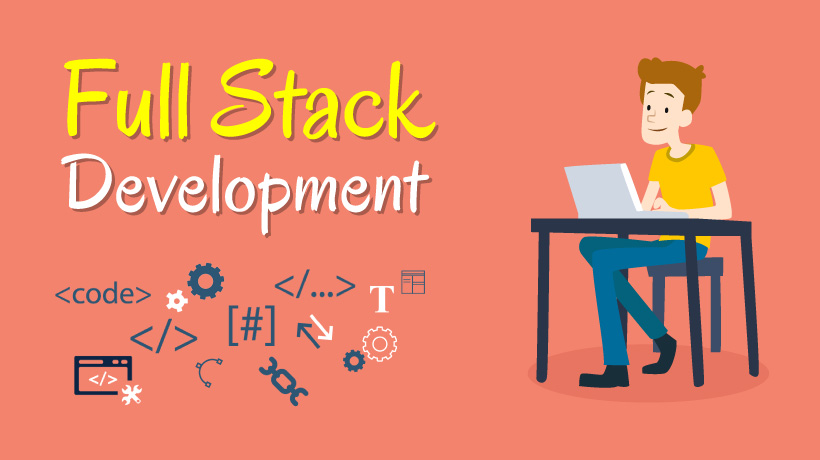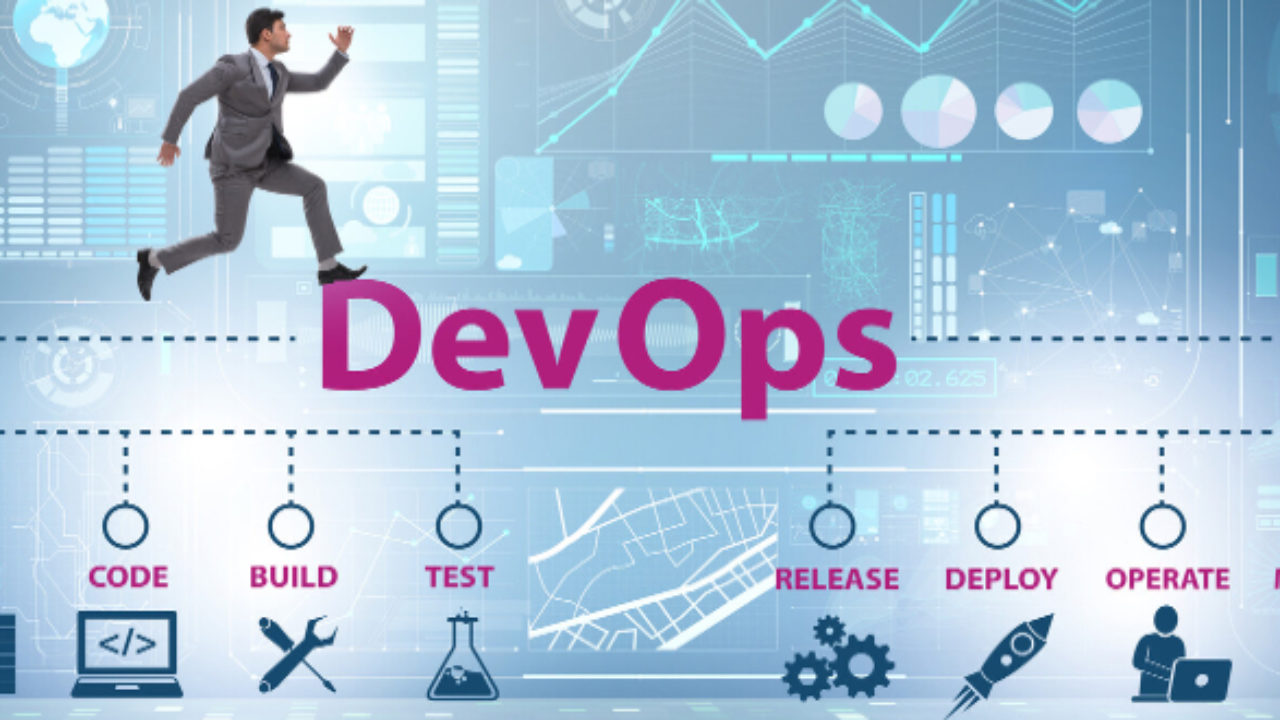Top 9 Best Tips for Full Stack Development in 2023

Do you know the Top 9 Best Tips for Full Stack Development in 2023? Full-stack development is an ever-evolving field that requires continuous learning and adaptation. In a field where technologies and methodologies change rapidly, it’s important to stay ahead of the curve and future-proof your skills. If you want to stay competitive and relevant in the industry, you need to be proactive in your approach to learning and development.
In this post, we will be sharing nine full-stack development tips that will help you future-proof your skills and stay ahead of the game in 2023. From keeping up with the latest technologies and tools to developing a growth mindset and building a strong professional network, these tips will help you become a sought-after full-stack developer. So, if you want to stand out from the crowd and achieve long-term success in full-stack development, keep reading!
Read More: Factors Before First Development in 2023
What is Full Stack Development?
Full Stack Development is the practice of developing a complete software application or website, from the front-end user interface to the back-end database management system. This approach ensures that the developer has a full understanding of the entire technology stack and can work on any layer of the application or website. Full Stack Developers are in high demand because they can work on multiple parts of the development process and are capable of solving complex problems that arise during the development process. They are also able to create a seamless user experience while ensuring that the back-end systems are robust and secure.
Full Stack Development requires a wide range of programming skills, including proficiency in programming languages such as Java, Python, JavaScript, and PHP. It also requires knowledge of various front-end technologies such as HTML, CSS, and JavaScript frameworks like React, Angular, and Vue. Additionally, Full Stack Developers must have experience with back-end technologies like Node.js and databases like MySQL, MongoDB, and Oracle.
In short, Full Stack Development is the ability to develop end-to-end solutions for complex software applications and websites. It is a highly sought-after skill in the technology industry and is expected to remain in high demand for years to come.
2. The importance of staying up-to-date in Full Stack Development
,

Full Stack Development is a rapidly evolving industry, with new technologies and best practices emerging all the time. If you want to future-proof your skills in Full Stack Development, staying up-to-date with the latest trends and developments is essential.
This means constantly reading and researching new technologies, attending conferences and meetups, and learning from experienced developers in the field. There are many online resources available, such as blogs, forums, and online courses, where you can learn about the latest tools, frameworks, and techniques.
It’s also important to stay up-to-date on industry trends and best practices. For example, keeping an eye on emerging trends like serverless architecture or microservices can help you stay ahead of the curve and anticipate where the industry is heading.
Finally, it’s important to be open to learning new things and experimenting with new technologies. As a Full Stack Developer, you should always be looking for ways to improve your skills and expand your knowledge base. By staying up-to-date and continually learning, you can future-proof your skills and stay relevant in an ever-changing industry.
3. An overview of trends in Full Stack Development
Full stack development is an exciting and constantly evolving field, with new trends and technologies emerging all the time. In order to future-proof your skills and stay ahead of the game, it’s important to stay up-to-date with these trends and understand how they fit into the broader landscape of full stack development.
One trend that’s set to continue is the rise of serverless computing, which allows developers to focus on building applications rather than managing infrastructure. This is expected to become increasingly popular in the coming years, as more and more businesses look to streamline their operations and reduce costs.
Another trend that’s worth keeping an eye on is the growing importance of microservices architecture, which involves breaking down applications into smaller, more manageable components. This approach allows for greater scalability and flexibility, and is becoming increasingly popular as more businesses move towards cloud-based solutions.
Other trends to watch out for include the increasing use of artificial intelligence and machine learning in full stack development, the growing importance of cybersecurity and data privacy, and the ongoing evolution of front-end technologies such as React and Angular.
By staying on top of these trends and understanding how they fit into the broader landscape of full stack development, you can future-proof your skills and ensure that you remain a valuable asset in this rapidly evolving field.
4. Tips for mastering front-end frameworks
Mastering front-end frameworks is crucial in full stack development. The most popular front-end frameworks include React, Angular, and Vue. Here are some tips to help you master front-end frameworks:
Start with the basics: Understand HTML, CSS, and JavaScript before moving on to frameworks.
Learn one framework at a time: Trying to learn multiple frameworks simultaneously can be overwhelming. Focus on one framework and master it before moving on to the next.
Read the documentation: Frameworks have detailed documentation that can help you understand the features and best practices.
Practice: Practice building projects using the framework. The more you practice, the more comfortable you will become with the framework.
Join a community: Join a community of developers who use the same framework. This can be helpful for getting advice and learning from others.
Attend meetups and conferences: Attend meetups and conferences to learn from experts and network with other developers.
Follow industry trends: Keep up with industry trends and new technologies. This will help you stay ahead of the curve and remain relevant in the industry.
Use online resources: There are many online resources, such as tutorials, blogs, and forums, that can help you learn and improve your skills.
Keep learning: The world of technology is always changing, so it’s important to continue learning and improving your skills to stay relevant as a full stack developer.
5. Tips for mastering back-end frameworks
Back-end frameworks are the backbone of full-stack development. They allow developers to build robust and scalable applications. If you’re looking to master back-end frameworks, here are some tips to help you future-proof your skills.
Choose a popular framework – Choosing a widely used back-end framework will help you gain exposure to the most in-demand technologies. Some popular back-end frameworks include Django, Node.js, Ruby on Rails, and Laravel.
Learn the basics – It’s crucial to have a strong foundation in the basics of back-end development. This includes understanding programming languages such as Python, Ruby, and JavaScript.
Understand database design – Back-end frameworks require a database to store information. Understanding database design concepts such as normalization, indexing, and data modeling will help you design efficient databases for your applications.
Learn to use APIs – Many back-end frameworks use APIs to communicate with other systems. Knowing how to create, manage, and consume APIs will give you an advantage in the job market.
Practice security – Back-end frameworks are often targeted by hackers. Understanding best practices for securing your application and data will make you a valuable asset to any team.
Stay up to date – Back-end frameworks are constantly evolving. Keeping up with the latest updates, security patches, and new features is essential for staying relevant.
Join online communities – Joining online communities such as Stack Overflow and GitHub will provide you with resources and support for mastering back-end frameworks.
Build projects – Practice makes perfect. Building your own projects using back-end frameworks will help you gain hands-on experience and solidify your understanding of the technology.
Collaborate with others – Working with other developers on back-end projects will expose you to different approaches and techniques for using back-end frameworks. It will also help you build valuable networking connections within the industry.
By following these tips, you’ll be on your way to mastering back-end frameworks and future-proofing your full-stack development skills for years to come.
6. Tips for improving your database skills

As a full stack developer, mastering your database skills is critical to your success in 2023 and beyond. Here are some tips to help you improve your database skills:
Understand the basics of SQL: Structured Query Language (SQL) is the most commonly used language for managing relational databases. Understanding the basics of SQL is essential for working with databases.
Learn how to design databases: Designing databases involves developing a schema, designing tables and defining relationships between them. Understanding how to design databases will help you create efficient, scalable and maintainable databases.
Familiarize with NoSQL databases: In recent times, there has been a shift towards NoSQL databases which are designed to handle unstructured data. Familiarizing yourself with NoSQL databases such as MongoDB, Cassandra or CouchDB will give you an edge in the market.
Learn about database security: As data breaches become more common, it’s important to understand how to secure your databases. You should learn about access control, authentication, encryption and other security measures to protect your data.
Stay updated with database trends: The database landscape is constantly changing with new tools and technologies emerging every day. Staying updated with the latest trends will help you stay relevant in the market and make informed decisions.
By following these tips, you can improve your database skills and keep up with the ever-changing technological landscape.
7. Tips for improving your DevOps skills

As a full-stack developer, having strong DevOps skills is crucial in today’s environment. DevOps is the combination of development and operations, and it brings together the entire software development lifecycle. It is a critical part of software engineering as it helps teams to work faster, more efficiently, and with greater confidence.
Here are some tips on how to improve your DevOps skills:
Learn automation tools: Automation is a key aspect of DevOps. You can learn tools like Jenkins, Puppet, and Chef to automate deployment, testing, and monitoring.
Familiarize yourself with Continuous Integration and Continuous Deployment (CI/CD): CI/CD is an essential part of DevOps, and it is important to understand the concepts and how they work.
Understand cloud infrastructure: Cloud infrastructure is an important aspect of DevOps, and you should have knowledge and experience with cloud infrastructure tools like Amazon Web Services (AWS) and Microsoft Azure.
Learn about containers and container orchestration: Containers are an essential part of modern software development, and container orchestration tools like Kubernetes help manage containers at scale.
Familiarize yourself with version control: Version control tools like Git are essential when working with large teams, and you should have a good understanding of how they work.
Learn about monitoring and logging: Monitoring and logging tools are critical for identifying and resolving issues in software applications.
Keep up with industry trends and best practices: DevOps is a fast-paced industry, and it is important to stay up-to-date with the latest trends, technologies, and best practices.
By following these tips, you can improve your DevOps skills and future-proof your career as a full-stack developer.
8. Tips for improving your soft skills
Full stack development is not just about technical skills. It’s also about the ability to work with others, communicate effectively, and manage projects efficiently. This is where soft skills come in.
Firstly, you should work on your communication skills, as these are essential for any developer. You need to be able to communicate your ideas clearly, listen to others, and collaborate effectively with your team members.
Another important soft skill to develop is adaptability. Technology is constantly evolving, and as a full stack developer, you need to be able to quickly adapt to new technologies, languages, and tools. You should also be open to feedback and willing to learn from mistakes.
Time management is also key. As a full stack developer, you’ll be juggling multiple tasks and projects, so it’s important to prioritize your work, stay organized, and manage your time effectively.
Finally, don’t forget about teamwork. You’ll be working as part of a team, so it’s important to be a good team player, support your colleagues, and contribute to a positive and productive team environment.
By focusing on these soft skills, you’ll not only improve your own abilities as a full stack developer but also become a more valuable team member and a better asset to any company.
Read More: OPPO is rumored to be developing on the OPPO Find N 5G Foldable Smartphone
9. The importance of continuing education for Full Stack Developers

The field of full-stack development is constantly evolving, and developers must be prepared to adapt to new technologies and trends. The importance of continuing education for full-stack developers cannot be overstated. By staying up-to-date with the latest advancements, developers can future-proof their skills and remain competitive in the job market.
There are many ways to continue learning as a full-stack developer. Online courses, workshops, and webinars are all great ways to stay informed about new technologies and techniques. Attending industry events and conferences is another great way to network with other professionals and gain insights into the latest trends in the field.
It’s also important to stay engaged with the developer community. This can mean contributing to open-source projects, participating in online forums or communities, or even starting your own blog or podcast
Ultimately, the key to continuing education as a full-stack developer is to remain curious and open-minded. The world of technology is constantly changing, and developers who are willing to embrace new ideas and technologies are the ones who will succeed in the long run. By prioritizing continuing education, full-stack developers can ensure that their skills remain relevant and in-demand for years to come.
10. Conclusion and final thoughts
full stack development is a constantly evolving field and staying up-to-date with the latest trends and technologies is crucial to future-proof your skills. By implementing the tips mentioned in this article, you can enhance your learning journey and stay ahead of the curve.
Remember to focus on building a strong foundation with the basics, staying curious and open-minded, and continuously upgrading and expanding your skill set. Embracing new technologies and taking on challenging projects will not only help you grow as a developer but also keep you engaged and motivated.
Networking with other developers, attending conferences, and participating in online communities can also provide valuable learning opportunities and help you stay connected with the industry
Lastly, always keep in mind that the key to success in full stack development is not just technical expertise but also effective communication, problem-solving, and teamwork skills. By developing a well-rounded skill set, you can future-proof your career and thrive in the ever-changing world of technology.












2 Comments